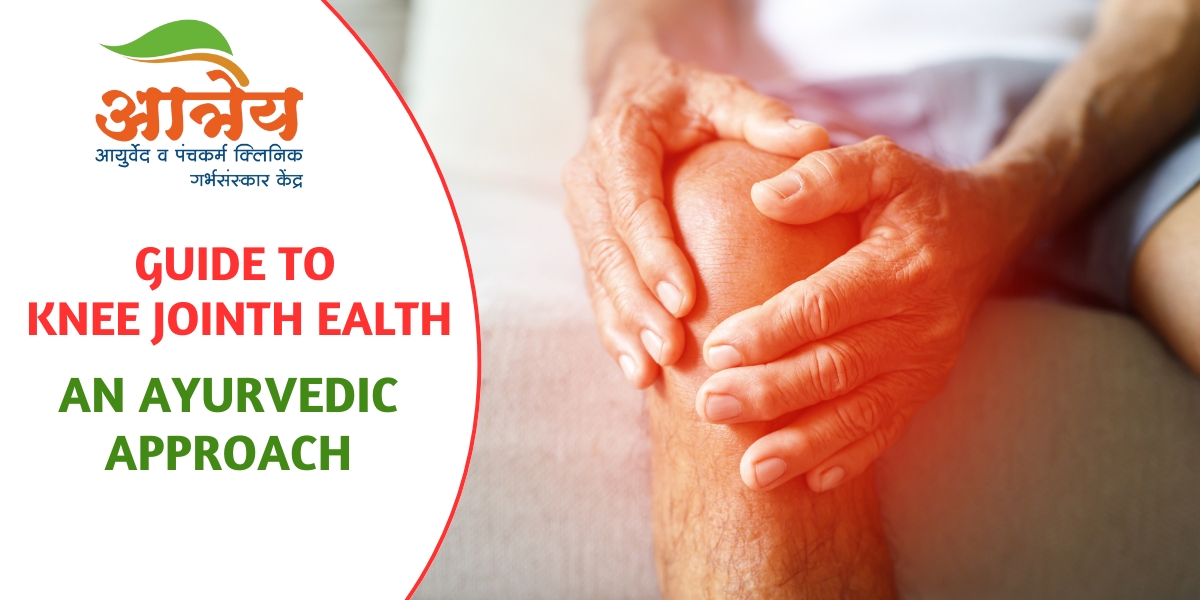Maintaining knee joint health is essential for overall mobility, well-being, and longevity. As one of the most complex joints in the body, the knee enables a wide range of movements, making it sensitive to wear and tear over time. An Ayurvedic approach to knee joint health combines traditional wisdom with modern insights to help maintain healthy joints, alleviate pain, and promote long-term wellness.
Understanding Knee Joint Health and Common Issues
The knee joint plays a crucial role in supporting body weight, enabling movements such as walking, running, bending, and jumping. With age or excessive stress, the cartilage and tissues within the joint can wear down, leading to pain, inflammation, and restricted mobility. Common knee joint issues include osteoarthritis, rheumatoid arthritis, ligament injuries, and tendonitis.
Ayurveda highlights balancing the body’s doshas—Vata, Pitta, and Kapha—to maintain health and harmony. When these energies are in balance, they promote natural healing and resilience, but imbalances can lead to joint deterioration and pain. Vata dosha imbalance, in particular, is closely linked to joint issues, as it governs movement and flexibility in the body.
Causes of Knee Joint Issues
- Aging: As we age, cartilage in the knees wears down, increasing the risk of osteoarthritis and other degenerative conditions.
- Lifestyle Factors: Sedentary lifestyles, poor posture, and excessive weight can increase strain on the knees, leading to pain and stiffness.
- Dietary Habits: An unbalanced diet, high in processed foods and low in nutrients, can contribute to joint inflammation and deterioration.
- Injury and Overuse: Physical injuries, especially sports injuries, or overuse due to strenuous activities can lead to ligament tears, meniscus damage, and other knee-related issues.
Ayurvedic Perspective on Knee Joint Health
In Ayurveda, joint health is primarily influenced by Vata dosha. When Vata becomes imbalanced, it causes dryness, stiffness, and pain, which can manifest in joint problems. Ayurveda also considers poor digestion and toxin accumulation (Ama) as contributing factors to joint pain, as toxins can accumulate in tissues, leading to inflammation and discomfort.
Ayurvedic treatment focuses on detoxifying the body, reducing inflammation, and restoring balance to the doshas through a combination of herbs, diet, lifestyle adjustments, and specific therapies.
Ayurvedic Herbs and Supplements for Knee Joint Health
1. Ashwagandha
Ashwagandha, known for its anti-inflammatory and rejuvenating properties, helps to strengthen joints and reduce pain. It balances Vata and improves joint resilience, making it effective for chronic knee issues.
2. Boswellia (Shallaki)
Boswellia has strong anti-inflammatory properties, helping to reduce joint pain and prevent cartilage degradation. It’s especially beneficial for people with osteoarthritis and rheumatoid arthritis.
3. Turmeric (Curcumin)
Turmeric is a powerful anti-inflammatory herb that can reduce swelling and pain. Curcumin, its active ingredient, helps protect joints from degeneration and is beneficial for managing arthritis.
4. Guggulu
Guggulu has both anti-inflammatory and rejuvenating properties, helping to reduce Ama (toxins) in the body and restore joint health. It is especially useful for chronic pain and stiffness.
5. Nirgundi
Nirgundi is another valuable herb that alleviates pain and inflammation in the knee joints. Its analgesic properties help reduce discomfort, allowing for improved mobility.
6. Ginger
Ginger, with its warming properties, reduces Vata imbalances and aids digestion, making it an ideal remedy for knee pain associated with stiffness and inflammation.
Dietary Recommendations for Knee Joint Health
A balanced, nourishing diet is essential for maintaining healthy joints and preventing inflammation. Ayurveda recommends the following dietary guidelines:
- Incorporate Warm, Cooked Foods: Since Vata is cold and dry by nature, consuming warm, cooked foods helps balance this dosha and improve joint flexibility.
- Include Anti-Inflammatory Foods: Foods rich in antioxidants, such as berries, leafy greens, and cruciferous vegetables, reduce inflammation and support joint health.
- Add Healthy Fats: Ghee, sesame oil, and flaxseed oil are excellent for joint lubrication and reducing dryness.
- Limit Processed and Sugary Foods: Processed foods contribute to the formation of toxins (Ama) in the body, leading to inflammation. Avoid refined sugars, fried foods, and artificial ingredients.
- Consume Herbal Teas: Herbal teas made with ginger, turmeric, or fennel can aid digestion and help detoxify the body, preventing Ama buildup in the joints.
- Opt for Joint-Friendly Spices: Spices like turmeric, cumin, and coriander reduce inflammation and enhance digestion.
Preventive Tips for Long-Term Knee Joint Health
- Maintain a Healthy Weight: Excess body weight puts additional stress on the knees. Maintaining a healthy weight can prevent early wear and tear on the joint.
- Avoid Prolonged Sitting or Standing: Alternating between sitting and standing reduces strain on the knee joints and improves circulation.
- Wear Supportive Footwear: Proper footwear can reduce impact and prevent knee strain. Avoid high heels and unsupportive shoes.
- Focus on Posture: Proper posture reduces strain on the joints and prevents wear.
- Stay Hydrated: Water helps maintain joint lubrication, which is crucial for flexibility and movement.
When to Consult an Ayurvedic Practitioner
While Ayurvedic practices and remedies can significantly improve knee joint health, consulting with an Ayurvedic practitioner is recommended, especially for persistent or severe pain. If you or your loved ones are suffering from knee joint pain and looking for an ayurvedic treatment for knee joint health. Visit Aatreya Ayurved & Panchakarma Clinic Hadapsar, Pune. Contact Number – 9561323931







